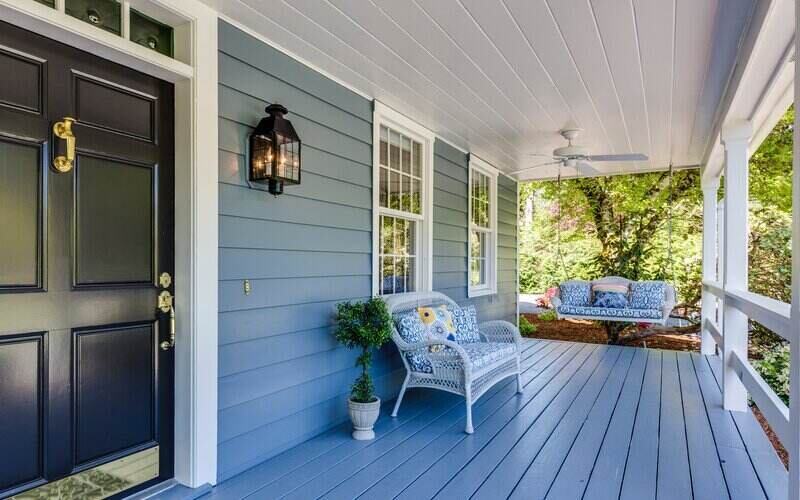A recent report from the Real Estate Institute of Australia (REIA) revealed that housing affordability will continue to be an issue if household income doesn't catch up.
A study by Genworth Lenders Mortgage Insurance outlined that many first home buyers are adopting a 'now or never' approach to home ownership as affordability concerns prevail, despite many government initiatives providing a leg-up.
If you’re a first home buyer trying to get your hands on a property, but it feels like the chance is slipping through your fingers, you might want to look into something like rentvesting.
Kasey McDonald, National Head of Growth & Leasing at :Different, gave us her two cents on why first home buyers should consider rentvesting as the first step to home ownership, with some tips and tricks, pros and cons, and advice to consider.
Rentvesting: the 'perfect start' for first home buyers
Rentvesting is the process of buying and renting out an investment property while living in a rental property yourself.
Generally speaking, rentvesting means you can live in a rental property you can't afford to buy, and buy an affordable property where you don't want to live.
Ms McDonald believes rentvesting can be the 'perfect start' to get into the property market, saying that often times it becomes easier to buy your second home by using the home's built up equity.
"Maybe you’re not ready to put down roots or can’t yet afford to buy in an area you want to live in long term," she told Savings.com.au.
"Rentvesting is about securing your financial future, without sacrificing your lifestyle."
Ms McDonald also said it's often more affordable if there aren’t cost-effective purchasing options available where you want to live.
"You can rent in the location you desire and have an investment property in an area that you can easily afford," she said.
Is rentvesting the right route?
When deciding if rentvesting is the right move, Ms McDonald said the first step is to identify what you want to get out of it.
"Do you want it as a future home or for wealth generation?" she implored first home buyers to ask themselves.
"This will guide your choices on the property you purchase including its location, size, and price."
Ms McDonald listed a few pros and cons of rentvesting to help people that are new to the concept understand whether it might be right for them.
"When investing in property, the main risks include low rental yield,so the gap between your rental income, mortgage repayments, and the property’s value is substantial; rental vacancy, meaning the property is not generating any income; property downturn, and maintenance costs," Ms McDonald said.
She said it's important to factor in these costs, in addition to the property price, and to ask yourself: After your current rent and the potential loan repayments, are you stretching yourself too thin?
Despite these risks, she said they can be minimised through research into overall capital growth potential, as well as considering the condition of the property.
“It is best to consider a low maintenance property to reduce expenses," Ms McDonald said.
Ms McDonald said it’s important to remember that rentvesting isn’t for everyone.
"Getting as much professional help as possible is crucial to ensuring you’re making a smart investment for future homeownership or wealth generation," she said.
Pros and cons of rentvesting
|
Your purchasing power won’t affect your lifestyle |
You still have to live in a rental |
|
You can buy a property sooner |
Your home won’t necessarily grow in value |
|
There are tax advantages to owning an investment property |
You have to pay rent and home ownership costs |
|
You can be smart about your purchase by doing your research |
You lose access to first home owner grants |
Tips and tricks for wealth generation through rentvesting
Ms McDonald said rentvesting for wealth generation is a whole different ball game.
"Rentvesting for wealth generation is all about research and advice from industry experts,” she said.
"This will ensure you’re in the best position possible to generate wealth from your investment, either through strong rental return or capital growth for resale value - this goal is also important for you to differentiate when investing."
Ms McGrath said borrowers should ask themselves what they are looking to get out of rentvesting for wealth generation: Are you looking for a quick win through resale, or is it a long-term investment to reap benefits over decades?
She said if you’re looking for the latter, you could consider buying in a regional area, where the rent has a higher likelihood of matching or exceeding loan repayments.
This way, the rental income will be enough to cover all of your expenses incurred by owning the property, and any out of pocket expenses will be tax deductible.
"Before making a purchase it is important to seek advice from your accountant so you understand both benefits and risks associated from a finance point of view," Ms McDonald said.
"Once you’ve reached a stage that the rent is covering your mortgage repayments, it might be worth considering a second, or third or fourth investment property."
Advice for interstate property purchasing
Median house prices have exceeded $1 million in places like Sydney, Melbourne, and Canberra.
With this in mind, Ms McDonald suggests first home buyers look at buying in cheaper locations to 'crack into the market' while maintaining a manageable investment portfolio.
However, she warns about regulatory factors that might differ between states, as well as financial costs and stamp duty.
"Be sure to speak to a professional if you’re considering purchasing out of state and factor these changes and expenses into your decision," Ms McDonald said.
She also mentioned some potential downsides, such as limited ability to visit the investment property, limited ability to move into the property down the track, and the regulatory differences.
"You should look closely at your circumstances and property prices in the area you may be interested in before making any decisions," Ms McDonald said.
"If you decide it’s the way forward for you, get as much professional help as possible and speak to a local real estate agent to make sure your purchase is the right one. It is all about doing your research."
Imave by Jarek Ceborski on Unsplash

Ready, Set, Buy!
Learn everything you need to know about buying property – from choosing the right property and home loan, to the purchasing process, tips to save money and more!
With bonus Q&A sheet and Crossword!



 Bea Garcia
Bea Garcia
 Denise Raward
Denise Raward
 Harry O'Sullivan
Harry O'Sullivan
 Hanan Dervisevic
Hanan Dervisevic


